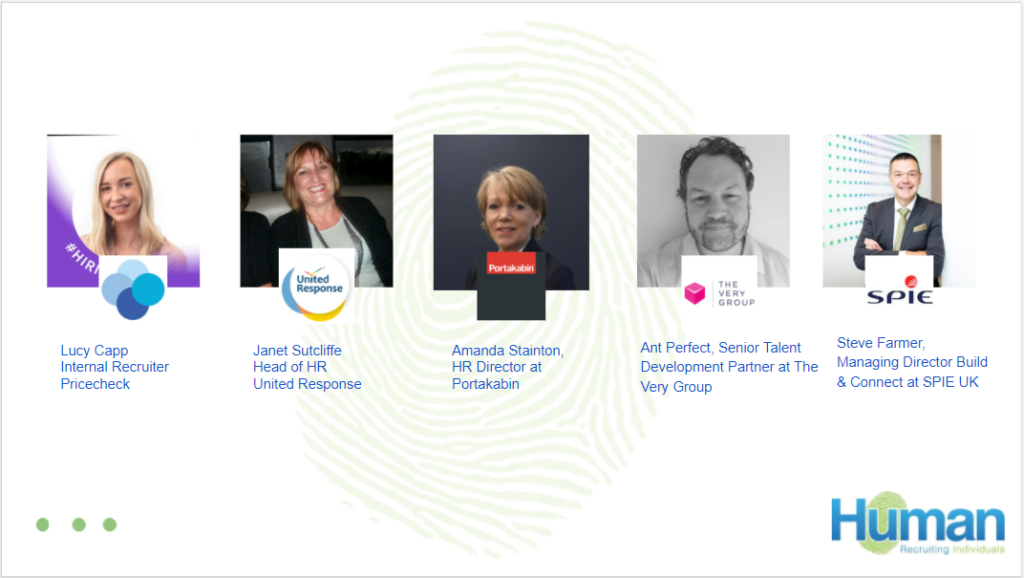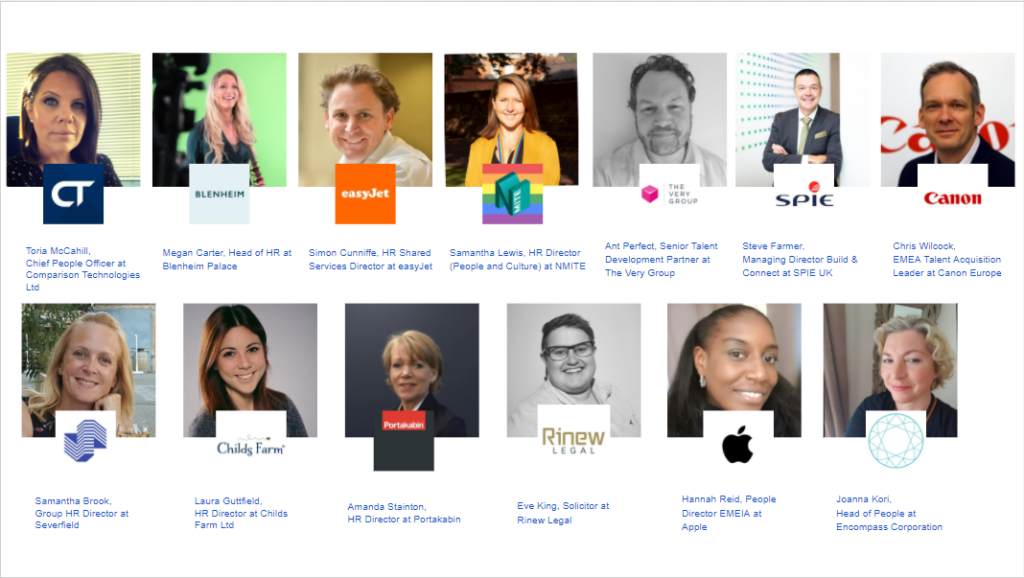“Grab every learning opportunity with two hands and don’t wait to be given it.” – Interview with Michelle Reid
“I never made the decision that HR was my core focus but I love HR because of what it affords me. It’s very generalist, it’s about unlocking people’s potential, adding value to the business and helping the business to see value in their people.” – Michelle Reid, People & Operations Director at the Institute of Occupational Medicine, speaks to us about developing a career in HR Leadership. As part of our commitment to supporting candidates to develop fulfilling careers, we’ve invited some HR Leaders to share the secrets of their success. This week, we had a great conversation with Michelle Reid at the Institute of Occupational Medicine (IOM), who began her HR career as a HR Manager with Morrison Supermarkets. After working with the Morrison group for 13 years, Michelle took up a role as Company HR Advisor at Dobbies Garden Centres. In 2011 she was promoted to HR Business Partner, and in 2015 became Company HR Manager. Michelle has been in her current role as People & Operations Director at the Institute of Occupational Medicine (IOM) since January 2018. Can you tell us how you got into HR and why? When I left school I began working in retail and became a jack of all trades doing everything and anything. My first experience with HR was when I was a Customer Service Supervisor working under a manager who was focussed on sales and shop standards but not on people and paperwork, so I picked up the slack in those areas. While at Morrison Supermarkets I joined their HR management programme which included Duty Manager responsibilities. I was there for almost thirteen years before I moved into a regional role at Dobbies Garden Centres. At the time, Morrison was changing their management roles in a way that didn’t suit me. I’m not the type of person to stay shut up in an office, I enjoy being out on the floor interacting with customers and staff. When I made the decision to leave Dobbies in 2017, I was consciously looking for roles that would enable me to develop further in the areas I was weaker in. Taking the role at IOM was a really conscious choice because I believed it would give me more of the opportunities I was looking for and enabled me to grow, as it has done. Before that, I don’t think I’ve ever made a specific decision that HR was the right career for me. When I left school HR wasn’t seen as an essential part of business, or in the spotlight in the way it is now. My move into HR was very organic. I have a flexible mindset where I see something that needs to be done, and I get stuck in, that’s what’s always shaped my career path. Even now, I still have a diversity of responsibilities. I don’t just do HR, I look after the business admin, business partnering, marketing, quality and facilities functions. I never made the decision that HR was my core focus but I love HR because of what it affords me. It’s very generalist, it’s about unlocking people’s potential, adding value to the business and helping the business to see value in their people. Can you tell me about the key themes and challenges that you’re seeing across the HR sector? The big challenge is unlocking the value of people to realise commercial success. IOM helps develop research and shape policy for the UK in areas that you wouldn’t necessarily know were operating in organisations, things like stress and mental health and workplace design. In addition, our consulting business helps organisations create a safe and productive environment for people to thrive in, where risks of illness or hospitalisation are minimised. At IOM we have an ageing population, alongside a desire to consolidate, simplify and grow in the future. It’s not easy to do that with the type of roles we have, some of them are very highly skilled: engineers, PHD scientists and laboratory technicians. It’s not like we can run a fast-track programme or train people from scratch into those roles, so talent attraction, development and succession planning are big focus areas for us right now. Coupled with that is creating opportunities for new and emerging talents. One of the benefits I’m afforded because I sit on the board is the flexibility to create, so I can create programmes, work experience and outreach to see what talent is out there, without needing it to be very formal. We’re very lucky in Scotland because there are several government groups set up to help organisations and young talent or people outside of work. For organisations like mine that are not-for-profit and don’t have a huge budget, this means we can get access to talent pools we might not have been able to reach before. I do outreach and mentoring of young people, recruitment masterclasses, CV support, and talks about career options. In small organisations you can still get amazing experience and opportunities to learn different areas. You don’t have to go to a big organisation to learn HR or marketing. Recently I was interviewing scholars for the Saltire Scholar programme and seeing the amazing talent that is coming into the workplace is incredible. That kind of exposure is really helpful, it helps people get to know us as an organisation as well. Ultimately the other challenge is around our value proposition, both commercially and from a people perspective. That’s about getting the IOM name out there, so people see us as synonymous with their workplace health and risk factors and realise that actually we’re a great career opportunity for someone. What career advice would you offer to someone either working towards a career like yours, or someone just getting started in their HR career? Grab every learning opportunity with two hands and don’t wait to be given it. My experience came from being curious and not shying away from something I didn’t know. One of the big learnings for me









